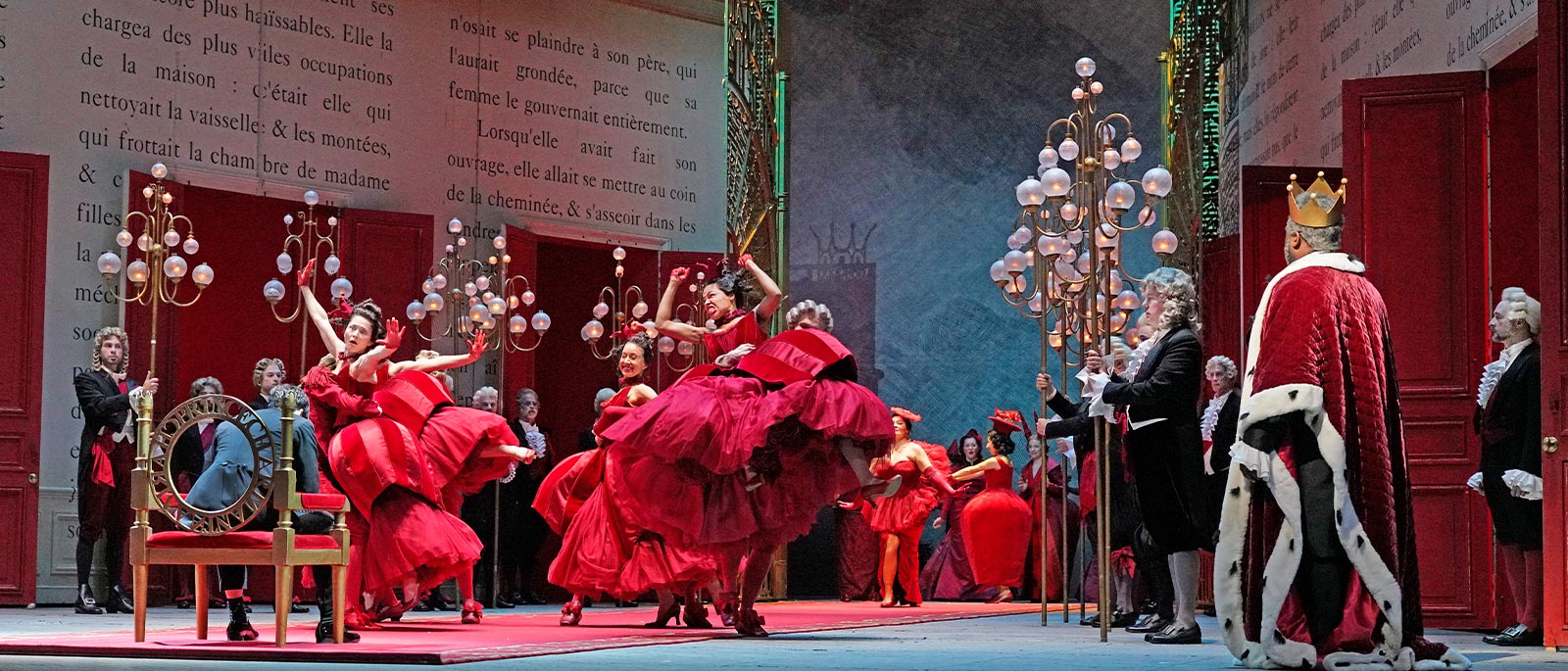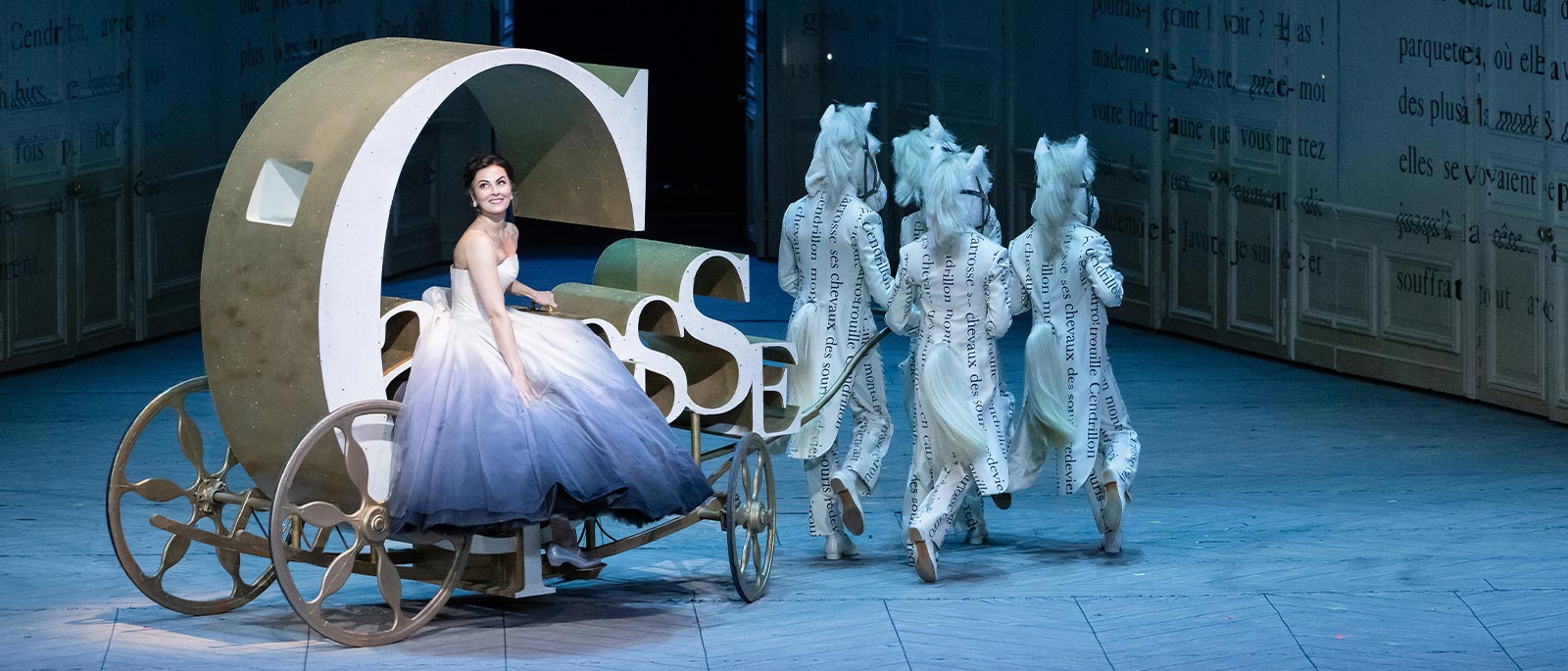
Jules Massenet
Cinderella—Holiday Presentation
This production ran: Dec 17 - Jan 3
This Production is in the past
Overview
Continuing a treasured holiday tradition, the Met presents a new installment in its series of abridged opera adaptations for family audiences. Laurent Pelly’s storybook staging of Massenet’s Cendrillon, a hit of the 2017–18 season, is presented with an all-new English translation in an abridged 90 minutes, with mezzo-soprano Isabel Leonard as its rags-to-riches princess. Maestro Emmanuel Villaume leads a delightful cast, which includes mezzo-soprano Emily D’Angelo as Cinderella’s Prince Charming, soprano Jessica Pratt as her Fairy Godmother, and mezzo-soprano Stephanie Blythe and bass-baritone Laurent Naouri as her feuding guardians.
Vaccines are now available for children ages 5–11, and fully vaccinated children are welcome at the Met two weeks after they have received their final dose. Photo ID for children under 12 will not be required as long as they are accompanied by parents/guardians with valid photo ID. Learn more
Holiday Family Festival: Explore illustrated synopses, coloring pages and activity sheets, and in-depth opera guides.
English translation by Kelley Rourke
The original full-length production of Cendrillon was produced in French, in association with the Royal Opera House, Covent Garden, London; Gran Teatre del Liceu, Barcelona; Théâtre Royal de la Monnaie, Brussels; and Opéra de Lille.
Original production by the Santa Fe Opera
Abridged English language production a gift of Elizabeth M. and Jean-Marie R. Eveillard
Original production of Cendrillon a gift of The Sybil B. Harrington Foundation, with additional funding from Elizabeth M. and Jean-Marie R. Eveillard
Languages
Languages sung in Cinderella—Holiday Presentation
Sung In
English
Titles
Title languages displayed for Cinderella—Holiday Presentation
Met Titles In
- English
- German
- Spanish
- Italian
Timeline
Timeline for the show, Cinderella—Holiday Presentation
Estimated Run Time
1 hrs 35 mins
-
House Opens
-
95 mins
-
Opera Ends
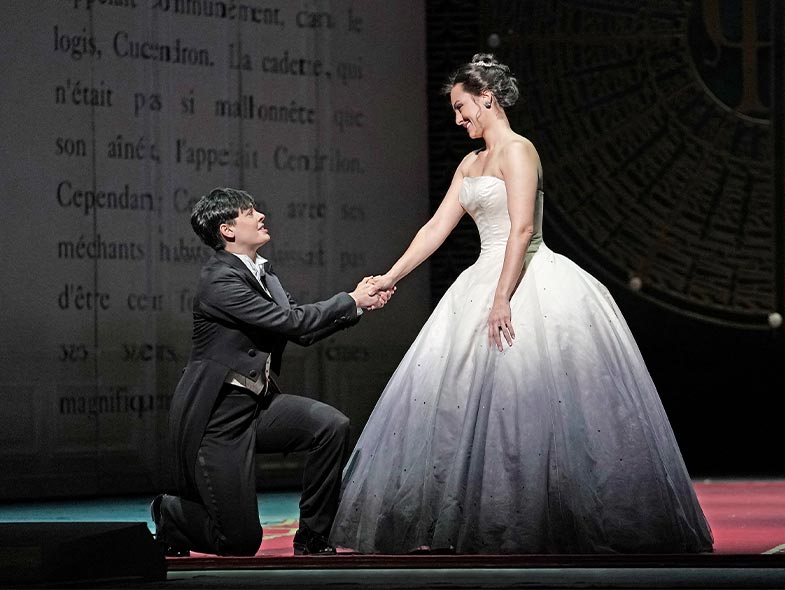
World Premiere: Opéra-Comique, Paris, 1899
Charles Perrault’s 1698 fairy tale, the classic telling of the Cinderella story, is an excellent source for an opera—providing color, romance, and relatable themes for audiences of all ages. The work includes many moments in which Massenet is at his best and most widely accessible, from the pageantry and glowing musical nostalgia for the French baroque in the court scenes to the otherworldliness of the love music to the wit and humor that permeate the work as a whole.
Creators
Jules Massenet (1842–1912), a French composer wildly popular in his day, was noted for his operas, songs, and oratorios. The libretto for the opera’s original French version, Cendrillon, was fashioned by Henri Cain (1857–1937), a dramatist known for providing libretti for operas, including several by Massenet. The Cinderella story was written by the French author Charles Perrault (1628–1703), who, beyond crafting a number of famous fairy tales, was a noted academic of his time. Kelley Rourke, who created the new English translation for this season’s presentation, is a librettist, translator, and dramaturg whose work has also appeared at English National Opera, Welsh National Opera, Scottish Opera, Washington National Opera, Opera Theatre of Saint Louis, and the Glimmerglass Festival, among others.
PRODUCTION
Laurent Pelly
Set Designer
Barbara de Limburg
COSTUME DESIGNER
Laurent Pelly
LIGHTING DESIGNER
Duane Schuler
CHOREOGRAPHER
Laura Scozzi
ENGLISH TRANSLATION
Kelley Rourke
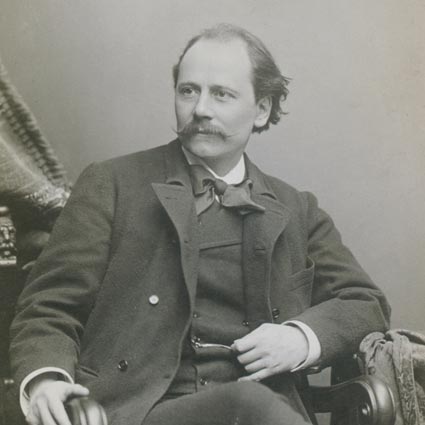
Composer
Jules Massenet
Videos
Setting
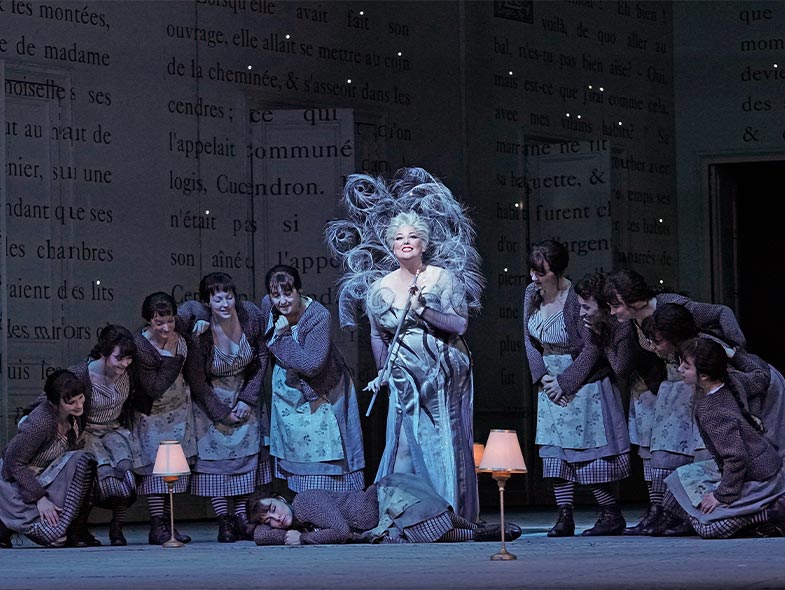
Perrault’s originally story was published at the end of the 17th century, and the opera and its music preserve references to that era of lavish court entertainments and clear-cut distinctions of social hierarchies. It is, however, a fairy tale, and as such, it takes place in an indeterminate past in which magic, whimsy, and love at first sight are features of everyday life.
Articles
Music
Massenet’s score features a preponderance of the lower female voices—including a mezzo-soprano as the object of Cinderella’s affection—that were so favored by French composers in the 19th century. The result is an otherworldly yet sensual tonal palette that serves as a rich background for this familiar tale. Against all the fairy-tale wonder of the score, the title character and her prince are recognizably human. Their love duet is a masterful moment emblematic of Massenet’s elegant style: The prince is lyrically effusive, while all of Cinderella’s gushing emotion is expressed in refined yet poignant phrases.
